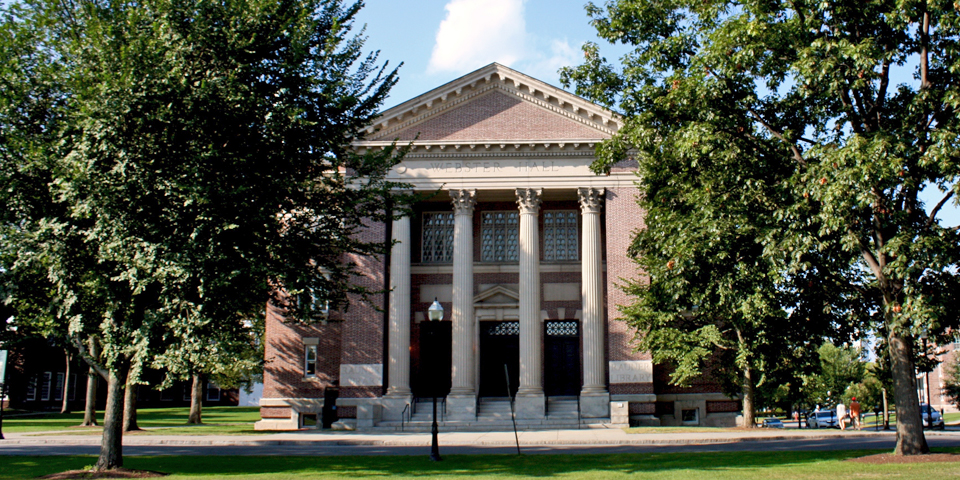
As I assume the Editorship of The Dartmouth Review, I find myself deeply humbled by the goodwill, trust, and responsibility which have been vested in me. I am lucky, and grateful, to be working alongside an outstanding editorial and business staff, whose membership uniformly appreciates the import of this organization. I am thankful for the guidance and friendship of my three immediate predecessors as Editor: Jacob Parker, Rachel Gambee, and Devon Kurtz. It is a privilege to embark upon this well-trodden path, for I am acutely aware of the legacy and historical importance of this paper.
To be sure, after more than four decades of publication, The Review—in its devotion to defending and preserving those characteristics which have historically defined the College—has surely become a veritable Dartmouth institution in its own right. In my view, The Dartmouth Review has become ingrained as a vital part of campus culture and is, itself, an historical institution well worth defending and preserving.
Dartmouth’s Rauner Library seems to think so too. Rauner houses a collection of nearly all Review issues from 1980 through the present—only a handful are missing—and, once this issue goes to print, it will join the ranks of Rauner’s Review collection. In so doing, it will become yet another entry under this paper’s name, stowed within the treasury in which the material history of Dartmouth College resides.
Rauner is without a doubt one of my very favorite places on campus, and only minimally due to its voluminous holdings of rare books, manuscripts, and artifacts. What truly motivates my adoration for Rauner is less grandiose but, to me, far more significant: the window which it affords into the College’s institutional history. Indeed, Rauner offers the opportunity to view and engage with any number and sort of Dartmouth records and documents through the centuries.
Rauner Library thus provides physical representation to what I would call the Old Dartmouth. It is fitting, then, that The Review is preserved there: I believe the paper exists and functions in much the same way as does Rauner. If Rauner offers a link in material form to the Old Dartmouth, so too does The Review offer a link—in spirit.
In this respect, The Review is unique among campus voices. It recognizes that preserving what has historically been best about the College, in its operations and in the interest of its students, cannot be done pro forma. It is not merely a matter of checking off the proverbial list of conventions and traditions. We at The Review recognize that what matters most in defending and preserving the Old Dartmouth is ensuring the continuation of an attitude, an approach to campus, an ethos. An institution deprived of the ethos which once defined it will invariably become, quite simply, a different institution. For its part, The Review staunchly believes that Dartmouth should retain its fundamental character. Hence, the Old Dartmouth finds its most prominent representation today within the pages of this paper, whose task it is to promote and revitalize this concept.
I often hear The Review criticized for the extent to which it presumably judges and attacks student life and the College itself. I firmly believe that, in recent years, this paper has not articulated any disagreements in a disagreeable way. Moreover, this paper operates not from a position of general dislike for the College but, quite the contrary, with tremendous regard for it. I note that The Review’s ardent appreciation for Dartmouth’s historical character may well emanate from distinctive ideological concern. The maintenance of tradition in its authentic form intrinsically carries greater ideological weight for The Review than it does for others. This doubtless yields an editorial advocacy which may be fairly said to periodically go against the grain but certainly not against Dartmouth as an institution. I thus begin my Editorship with what I trust is an understanding of the historical significance of the College and this paper alike. I am optimistic about both, and I know The Review will continue to both exemplify and advocate without fail the ethos of the Old Dartmouth.

Be the first to comment on "Editorial: Preserving the “Old Dartmouth”"